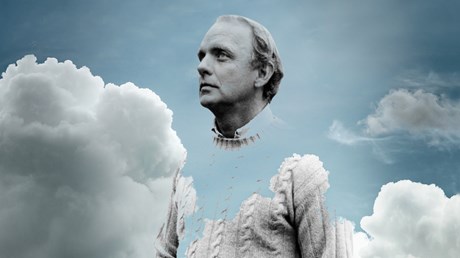Frederick Buechner diffused the power of disbelief and brought hope to wandering hearts.

In The Alphabet of Grace, the late writer Frederick Buechner gave an account of his conversion. He was agnostic at the time but had been attending a church because he liked the preacher, George Buttrick.
Queen Elizabeth had recently been crowned, and Buttrick made a connection to those events by saying that unlike the queen, Jesus has been crowned again and again in the hearts of those who trust him. Here’s how Buechner describes it:
He said in his odd, sandy voice, the voice of an old nurse, that the coronation of Jesus took place among confession and tears and then, as God was and is my witness, great laughter, he said. … At the phrase great laughter, for reasons that I have never satisfactorily understood, the great wall of China crumbled and Atlantis rose up out of the sea, and on Madison Avenue, at 73rd Street, tears leapt from my eyes as though I had been struck across the face.
I study apologetics, especially the dynamics of faith and doubt, so Buechner’s testimony is doubly significant to me. I can hardly read that passage without tears of my own. I confess that the gospel often feels too good to be true, even as I long for it to be true with every fiber of my being.
But if I find myself with faith, it’s at least in part because I know the feeling of being claimed by “tears and great laughter” while hearing the gospel or receiving Communion. I know of no writer other than Buechner who captures what I might call the incredulity of joy—a doubt-tinged hope that insists on “whistling in the dark,” as he put it.
I was raised in a religious context that emphasized certainty, moments of decision, and the clarity of Scripture over experience. Those ...
from Christianity Today Magazine
Umn ministry


.gif)

.gif)
.gif)
